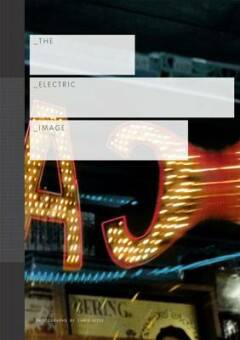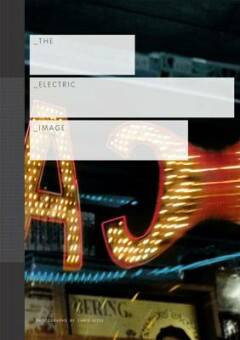
- Afhalen na 1 uur in een winkel met voorraad
- Gratis thuislevering in België vanaf € 30
- Ruim aanbod met 7 miljoen producten
- Afhalen na 1 uur in een winkel met voorraad
- Gratis thuislevering in België vanaf € 30
- Ruim aanbod met 7 miljoen producten
Zoeken
Omschrijving
In The Electric Image, Chris Kitze explores the transformation and globalization of culture by digital technology. Investigating urban centers where store windows and monumental advertising images are a worldwide phenomenon and a part of modern mythology, Kitze reveals how the numerical representation of imagery makes it possible for everything and anyone to be everywhere. Although Kitze is fascinated by digital forms, he does not apply the technology to his work. Instead, he allows these objects to reflect and collide with one another, creating an improvisational mise-en-scène replete with unintended meaning and full of ambivalence. Questioning the new realism of digital media and its manipulation of desire and fear through the use of familiar icons and archetypes, The Electric Image exposes how easily one can appropriate, manipulate, and distribute the digital image, challenging photography's traditions of originality and authority. What emerges is a new visual mythology not unlike software, which is malleable in the hands of a user and transformative of cultures.
Specificaties
Betrokkenen
- Auteur(s):
- Uitgeverij:
Inhoud
- Aantal bladzijden:
- 63
- Taal:
- Engels
Eigenschappen
- Productcode (EAN):
- 9781576874387
- Verschijningsdatum:
- 4/03/2008
- Uitvoering:
- Hardcover
- Formaat:
- Genaaid
- Afmetingen:
- 230 mm x 314 mm
- Gewicht:
- 784 g

Alleen bij Standaard Boekhandel
+ 122 punten op je klantenkaart van Standaard Boekhandel
Beoordelingen
We publiceren alleen reviews die voldoen aan de voorwaarden voor reviews. Bekijk onze voorwaarden voor reviews.








